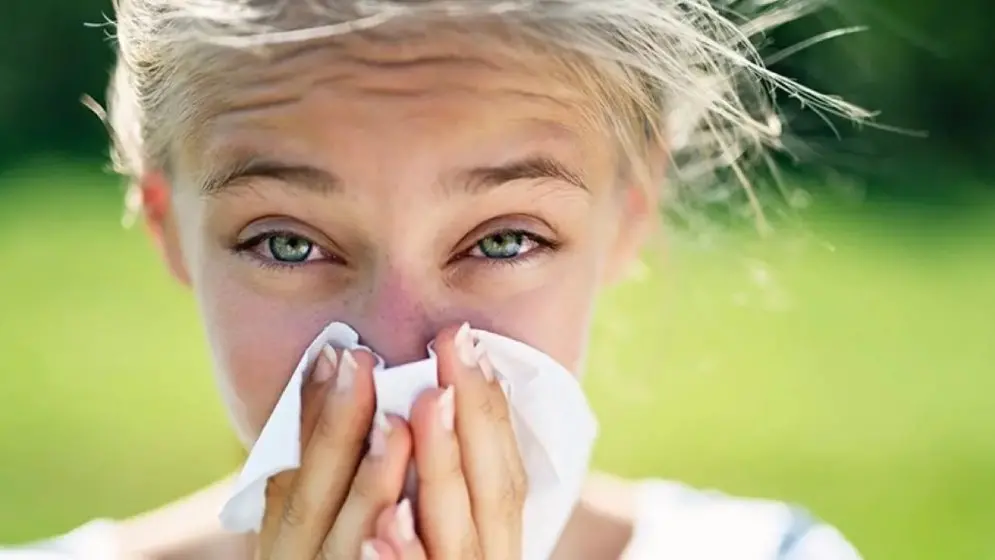Do You Have Winter Allergies?
1. Understanding Winter Allergies
While spring and fall are well-known allergy seasons, winter can bring its own set of allergens. With more time spent indoors, winter allergies are often triggered by indoor allergens, like dust mites, mold, and pet dander, rather than outdoor pollen. Understanding these unique triggers is the first step toward finding relief.
2. Common Causes of Winter Allergies
Dust Mites: These tiny creatures are prevalent in bedding, upholstery, and carpets. They thrive in warm indoor environments and can easily become airborne, triggering allergic reactions.
Mold: Mold spores can accumulate in humid areas, such as bathrooms, kitchens, and basements, and are often distributed through HVAC systems.
Pet Dander: Spending more time indoors with pets in winter means increased exposure to pet dander, a common allergen that can cause symptoms ranging from itchy eyes to respiratory distress.
Indoor Pollutants: Wood-burning stoves, scented candles, and fireplaces can release particulate matter and other irritants into the air, aggravating respiratory symptoms.
3. Typical Symptoms of Winter Allergies
Winter allergies share symptoms with other seasonal allergies, which may include:
• Respiratory Symptoms: Sneezing, congestion, runny nose, and coughing are common responses to dust mites or pet dander.
• Eye Irritation: Itchy, red, or watery eyes can be triggered by mold or dust mite exposure.
• Skin Reactions: For some, indoor allergens can cause skin reactions, including rashes or hives.
• Overall Fatigue: Constant exposure to indoor allergens can cause fatigue and sleep disturbances, especially for sensitive individuals.
4. Preventative Strategies for Winter Allergies
Taking proactive steps to reduce exposure to indoor allergens can significantly improve winter allergy symptoms:
• Regular Cleaning: Vacuum carpets and upholstery with a HEPA filter vacuum cleaner to capture dust mites and pet dander.
• Use Air Purifiers: High-efficiency air purifiers can reduce dust, dander, and mold spores in your home, especially in bedrooms.
• Bedding Management: Wash bed linens and pillowcases weekly in hot water to kill dust mites.
• Control Humidity: Use a dehumidifier in damp areas of your home, keeping indoor humidity below 50% to discourage mold growth.
• Avoid Pet Allergens: Keep pets out of bedrooms and brush them regularly to reduce dander.

5. Effective Treatment Options
Several treatment options can help manage winter allergy symptoms:
• Antihistamines: Over-the-counter antihistamines can alleviate sneezing, itching, and runny nose.
• Nasal Sprays: Steroid nasal sprays reduce nasal inflammation, helping relieve congestion.
• Decongestants: Oral or nasal decongestants can offer temporary relief for nasal congestion but should be used cautiously.
• Immunotherapy: Allergy shots or sublingual tablets are effective for those with severe allergies, building long-term tolerance.
• Natural Remedies: Saline nasal rinses, like a Neti pot, can help clear nasal passages of allergens.
6. Dietary and Lifestyle Tips
Adopting certain dietary and lifestyle practices may also lessen the impact of winter allergies:
• Anti-inflammatory Foods: Foods rich in antioxidants and anti-inflammatory properties, like leafy greens and fatty fish, can reduce allergy-related inflammation.
• Hydration: Staying well-hydrated can thin mucus, easing respiratory symptoms.
• Regular Exercise: Indoor exercise improves circulation and boosts immunity, but avoid working out in damp or mold-prone spaces.
• Limit Alcohol and Caffeine: These can dehydrate the body and may worsen congestion.
• Indoor Air Quality: Avoid using heavily scented candles or wood-burning fireplaces that release airborne irritants.
7. Managing Winter Allergies for Different Age Groups
Children
• Safe Medications: Use age-appropriate antihistamines and consult with a pediatrician for persistent symptoms.
• Build Good Habits: Teach children to wash their hands often and avoid touching their faces to prevent allergen exposure.
Adults
• Comprehensive Treatment: Adults may benefit from a combination of antihistamines, nasal sprays, and lifestyle adjustments for effective symptom relief.
• Indoor Allergen Management: Regular cleaning, along with the use of air purifiers, can significantly reduce symptoms indoors.
Seniors
• Monitor Side Effects: Seniors may be more sensitive to medications like antihistamines, so consult a healthcare provider before starting new treatments.
• Indoor Environment Adjustments: Use a humidifier and air purifier to maintain a comfortable indoor environment without aggravating allergy symptoms.
8. Conclusion
Winter allergies may stem from indoor allergens rather than seasonal pollen, but they can still significantly impact quality of life. Through diligent prevention, effective treatment options, and mindful lifestyle practices, you can reduce the impact of winter allergies and enjoy the colder months comfortably.










































